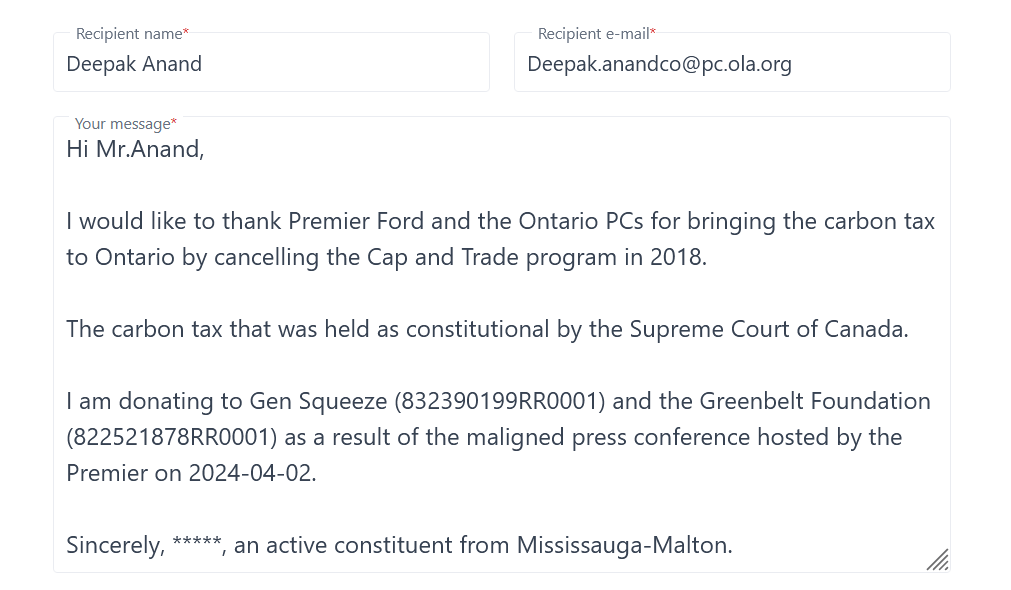this post was submitted on 02 Apr 2024
1 points (100.0% liked)
Ontario
2187 readers
1 users here now
A place to discuss all the news and events taking place in the province of Ontario, Canada.
Rules
- No bigotry - including racism, sexism, ableism, homophobia, transphobia, or xenophobia.
- Be respectful, especially when disagreeing. Everyone should feel welcome here.
- No porn.
- No Ads / Spamming.
founded 3 years ago
MODERATORS
you are viewing a single comment's thread
view the rest of the comments
view the rest of the comments

Aren't corporations exempt from the tax and allowed to buy carbon credits at a much lower price instead? And aren't entire industries exempt, like agriculture (the single largest generator of carbon emissions in Canada)?
And don't those rebates for the carbon tax stop at just $61k income for an individual? Thats barely enough to buy a 50 year old trailer in BC (and you don't own the land it's on) last I checked. Considering the cost of living I'm sure that "low income" cutoff is way too low.
All that amounts to middle class people who are barely making their mortgage payments paying more than corporate giants are.
When you measure tax contributions as a percentage of total wealth, corporations and ultra rich always pay less than everyone else.
Under the current carbon pricing scheme, there is no such thing as purchasing of carbon credits. This might be the case under a cap and trade system, which currently only exist in places like Quebec and California (and formerly Ontario). Additionally, if corporations were exempt, there would be no need to buy carbon credits.
There are special areas such as home heating where there is a temporary hiatus on the carbon pricing.
The carbon tax rebates apply uniformly. But remember that carbon pricing punishes those who heavily rely on carbon based fuels (e.g. people with multiple vehicles, homes, etc).
Carbon pricing is not intended to redistribute wealth. So the point about the upper class paying a lesser percentage of their wealth is not relevant and we also don't have evidence of this.
There is also an exception on farm related fuels. I only mention this because there is also a huge misconception that the carbon rebate is increasing the cost to grow food and that's why food prices are up so much.
Thank you for this point. This is important to highlight in the age of carbon pricing misinformation.